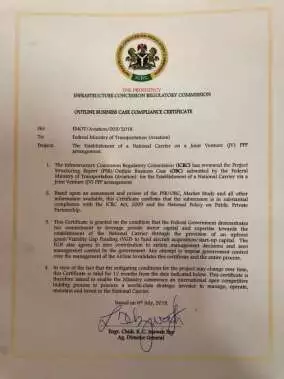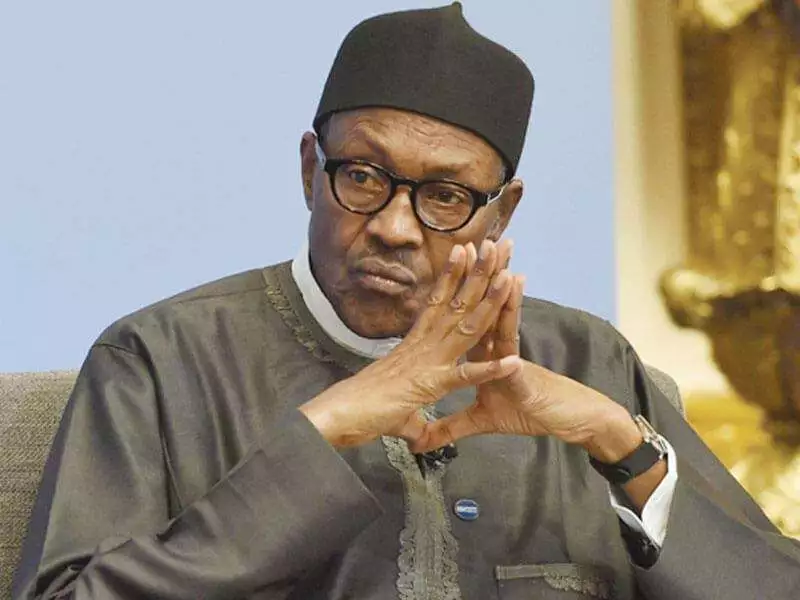Finally, the fear of skeptics have materialized: Air Nigeria has become the latest still-born child of the Muhammadu Buhari-led APC government. Three months after the Logo was unveiled in Faraway London, the Minister of state for Aviation, Hadi Sirika, a former senator who was the chairman Senate Committee on Aviation, announced to a bemused world that the proposed National Carrier has been suspended mid air till further notice.
“I regret to announce that the Federal Executive Council has taken the tough decision to suspend the National Carrier Project in the interim. All commitments due will be honored. We thank the public for the support as always”, he had tweeted after the Federal Executive Council meeting in Abuja. That terse statement ended the dream of that overhyped project. Three months after the unveiling of the logo, and three months before the proposed take of the carrier, the Airline has crashed into the murky waters of political expedience and financial controversy.
The Airline was expected to be private sector driven, but the federal government, which claimed to have only five percent of the share capital-the investors will share the other 95%-disbursed a whooping sum of $5million as a takeoff grant. “It is a business, not a social service. The government will not be involved in running it or deciding who runs it. The investors will have full responsibility for this”, Sirika had said then. This has generated so much controversy as the names of the so called investors were shrouded in secrecy. Now Sirika has claimed that all commitments will be duly honored. “Are there penalties stipulated in the contracts?” wondered Donald Duke, a presidential aspirant and former governor of River State. “Buharinomics at its worst.”
Duke appears to be right. Not a few believed that the airline is just a ruse to enrich certain contractpreneurs and launder money for the 2019 elections. Several contradictory statements credited to the government tended to create the impression that there is more to it than meet the eye. Item: Market research was commissioned by the ministry, which was extensive and far reaching. Focus groups across Nigeria were targeted, and over 100 interviews were conducted with aviation stakeholders and professionals, politicians, Nigerian business owners, students and a wide range of Nigerians across board. Nobody has come forward to confirm he has been contacted for any survey, even when everybody is regarding the assertion with disbelief.
Besides, Sirika has claimed that there have been negotiations with Boeing and Airbus for the purchase of a ircraft, which, this magazine gathered, will have been concluded by the purchase of retired aircraft to pass for brand new ones. Refurbished, of course. This coupled with the fact that government was negotiating with Ethiopian airlines as a core investor-an airline that relied on Nigerian Airways for its teething problems in the days of yore. Quarter Airways was also in the picture. Another group is AFREXIM, which has been on the negotiating table with Nigeria for a slice of the pie. AFREXIM recently doled out $750 million to Bank of Industry.
ircraft, which, this magazine gathered, will have been concluded by the purchase of retired aircraft to pass for brand new ones. Refurbished, of course. This coupled with the fact that government was negotiating with Ethiopian airlines as a core investor-an airline that relied on Nigerian Airways for its teething problems in the days of yore. Quarter Airways was also in the picture. Another group is AFREXIM, which has been on the negotiating table with Nigeria for a slice of the pie. AFREXIM recently doled out $750 million to Bank of Industry.
Last July, the Minister was optimistic that the National carrier will meet its deadline by December. “Glad to announce that we received the Outline Business Case Certificate of compliance for the National Carrier project from ICRC. The December kick off date of the project is slowly becoming reality”, he had said. So what went wrong?
First, stakeholders are not comfortable with the 5% Nigerian Equity. The Aviation Safety Round-table Initiative (ASTRI) suggested it be pegged at around 40%. “This shareholding formula will make the airlines national carriers. The FG and States may not necessarily have holdings in flag carriers but the Nigerian public must have minimum of 40 per cent shares, if there would be no foreign technical investors and partners,” their Secretary, Group Capt. John Ojikutu (rtd). This was not in consonant with government position. Also, it was said that they have been able to acquire about eight aircrafts and would be doing most of the checks at Singapore, while poaching some Aircrafts for the national Carrier from Arik and Aerocontractors. The so called stolen Aircraft was said to be geared towards the National carrier. And this may have been the straw that broke the Carmel’s back.
Whatever happens, it is difficult to see the carrier reactivated under this administration.
Discover more from The Source
Subscribe to get the latest posts sent to your email.








